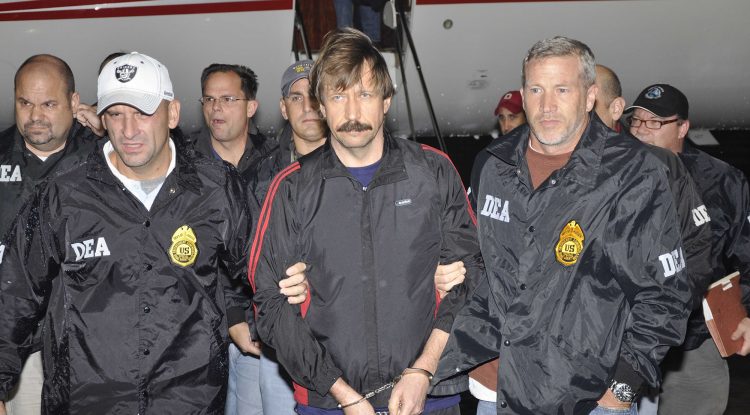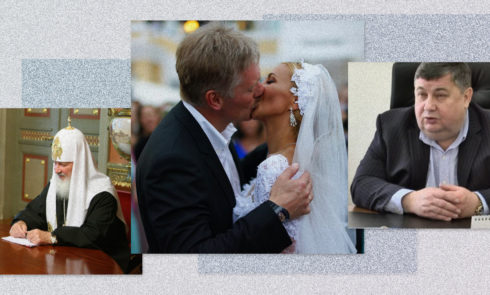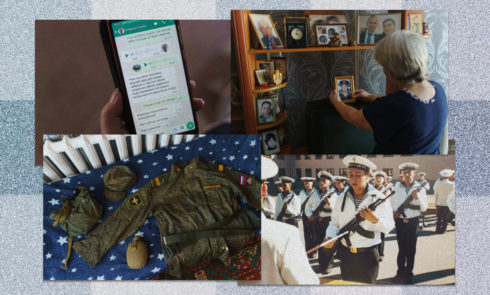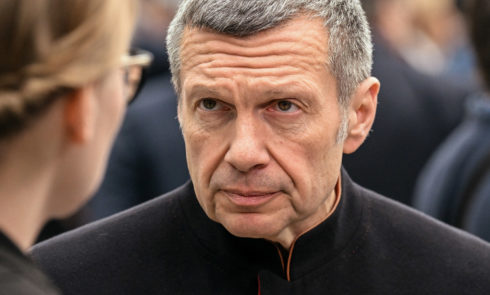American basketball player Brittney Griner, who was detained and sent to prison in Russia for contraband and drug possession, was exchanged for Viktor Bout, a 55-year old Russian citizen imprisoned in the States. Holod compiled the biography of Bout, who earned the nickname “Merchant of Death” in the West.
Translator
Viktor Bout was born in 1967 to a family of an auto mechanic and an accountant in Dushanbe, Tajikistan, then part of Soviet Central Asia. Up until the fourth grade, he attended a school with an emphasis on learning English, however, later the family moved to the Leninsky settlement (currently Somoniyon).
“He was the best student. Very proactive, organized all of our special events. He was the school’s komsorg (low-rank functionary of the Komsomol)!” Bout’s homeroom teacher, Larisa Lepeshkina, said of him.
As a child he showed an aptitude for languages, in high school he studied German and Esperanto on his own. After high school, Bout tried to apply to the Moscow State Institute of International Relations, MGIMO, but received an “F” on the entrance essay exam and was drafted into the army. Two years later he became a student of the Portuguese department of the Red Banner Military Institute in Moscow. Completing an intensive one-year course, Bout earned the rank of junior lieutenant and went to serve as an interpreter in Angola and Mozambique; additionally, served as part of the UN peacekeeping forces. He said that when he returned from deployment, he left the Institute, having earned the rank of lieutenant, and became an interpreter at the air freight center of the Union of United Cooperatives of the Soviet Union. Bout was 23 years old at the time.
Negotiator with the Taliban
Bout worked as an interpreter for a little over a year. In the early 1990s, he started his own international airline business, and over time Bout had his own fleet of planes. Several of his companies organized flights from Europe and Asia to Africa. “In 1994, we flew a French task force to Africa when the genocide began in Uganda (Bout apparently meant to say Rwanda—ed.Holod). We also took the Belgian military task force to Somalia, and for a year and a half, we provided all of its transportation,” Bout said. “We also had contracts with Russian companies. For example, we flew about 100 flights under the Rosvooruzhenie (former import/export company for military and dual use products—ed. Holod) contract with the Angolan government.”
In 1995, Taliban fighters seized a Russian Il-76 aircraft which was delivering ammunition to the Afghan government. Bout was involved in negotiations with the Taliban to free the crew—as his wife Alla Bout later explained, he had chartered the plane for cargo deliveries to the Afghan government. But the negotiations failed: the pilots were held captive for another year, and Bout's company, Transavia, regularly delivered food, water and cigarettes to them. In 1996, during a routine inspection of the plane, the crew managed to fly themselves from captivity in it. The Russian side claimed that the escape came as a surprise, but most likely it had been premeditated: the pilots received permission from Iranian authorities to fly through the country’s airspace right after takeoff. According to the pilots, Bout was one of the first people to meet them at Sharjah airport in the UAE. The businessman himself said that the crew was “rescued” from captivity, but did not disclose the details of the operation.
“Lord of War”
The Guardian first reported that Bout had been “delivering arms to African war zones for many years” in 1999. A year later, the UN Security Council asked a group of experts to prepare a report on the observance of the international embargo on Angola, where civil war had been going on since 1975. The experts concluded that the rebels continued to receive weapons in circumvention of the embargo and that it was Bout who was shipping them. Later he was also accused of supplying arms to the rebels in Sierra Leone and Liberia.
As a result, the UN imposed personal sanctions on Bout: in 2002, it banned him from traveling around the world, and three years later, together with the United States, it demanded that the businessman and all of his associated companies and individuals' accounts be frozen. Alla Bout claimed that this caused her husband to go bankrupt, stop his airline business, and cease traveling outside of Russia. However, according to Alex Vines, who was the UN sanctions inspector in West Africa at the time, Bout traveled internationally freely because he had several passports in different countries.
Bout himself considered his transportation business legitimate: “I was doing my job, it was none of my business what I was transporting and what it was for—I received the order, I handled everything legally. And if there were issues with the cargo, why don't they go after the recipients or the senders?”
In 2003, The New York Times released a profile of Bout, and two years later director Andrew Niccol made the film Lord of War, in which the main character, whose prototype was the Russian businessman, was played by Nicolas Cage.
Prisoner
In 2008, Bout was arrested in Thailand at the request of the U.S. Drug Enforcement Administration. According to the prosecution, U.S. intelligence agents posed as members of the Colombian group FARC, which is recognized in the United States as a terrorist group, and negotiated with Bout about the purchase of anti-aircraft missiles. They let him know that they planned to use the weapons to attack U.S. troops supporting the Colombian government. In response, Bout allegedly said: “You and I have the same enemy.”
The U.S. authorities charged the businessman with conspiracy to murder American citizens and officials, unlawful attempt to sell arms, and support of a terrorist group. Bout spent two and a half years in Thailand, where local courts twice refused to extradite him to the U.S., considering his guilt unproven. But in 2010, a Thai appeals court agreed to extradite Bout on charges of aiding terrorists. Two years later, a jury in New York found the businessman guilty on all charges, and he was sentenced to 25 years in prison.
Bout pleaded “not guilty”. He claimed that he never took part in the negotiations to sell weapons and only wanted to sell some planes “left over from when his aviation business went bankrupt” through his business partner to a certain client.
Citizen Exchanged
“The issue of a mutual exchange of Russian and American citizens who are imprisoned on the territory of both countries was once discussed by the presidents of Russia and the United States,” Russian Foreign Ministry spokeswoman Maria Zakharova commented on the possible exchange of Bout for Griner and Paul Whelan, a former U.S. Marine serving a lengthy prison sentence in Russia on espionage charges.
In 2011, a rumor that Victor Bout was to be exchanged for former Defense Ministry officer Andrei Khlychev, convicted in Russia for working for U.S. intelligence agencies circulated in the media. At the time, former Foreign Ministry spokesman Alexander Lukashevich denied that Russia was going to exchange Bout for anyone, since the businessman had never been in the civil service and had never carried out instructions from government agencies.
Steve Zissou, a U.S. attorney who represented the Russian, was “cautiously optimistic” about the chances of an exchange. According to him, the Russian government has “consistently expressed their desire to have Viktor Bout returned home.” At the same time, he suggested that "for security reasons,” U.S. authorities were unlikely to announce the prisoner exchange before it was completed: “It won't be known until the plane [with Bout on board] lands [in Russia].”



